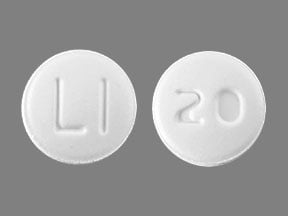
Zestril Coupons & Savings Card – Discount Prices from $9.48
Brand for: Lisinopril
My prescription
Edit
20MG, Lisinopril (30 Tablets)
Select pharmacy

CVS
$18.93
COUPON PRICE
Albertsons
$9.48
COUPON PRICE
Walgreens
$9.79
COUPON PRICE
Walmart
$15.52
COUPON PRICEZestril savings card
Show this card to your pharmacist
Albertsons
$9.48
BIN
ID
PCN
GRP
015995
LHKRA606826
GDC
DR33
Powered by
Related ACE inhibitors prescriptions
More prescriptions for hypertension
Related ACE inhibitors prescriptions
More prescriptions for hypertension
Price history for Zestril (brand) & Lisinopril (generic)
30 Tablets, 20MG
Average retail price for Zestril
Average retail price for Lisinopril
Average SaveHealth price for Lisinopril
Our price history data is based on aggregated prescription data collected from participating pharmacies in America. Our prescription data updates daily to reflect the latest price changes. If you notice a missing data point, it means there wasn't sufficient data available to generate a monetary value for that date.
Over the last 12 months, the average discount price of Zestril is $11.35 using the SaveHealth savings card. That's an average savings of 97.63% on Zestril with our discount card.
*Retail prices are based on pharmacy claims data, and may not be accurate when we don't have enough claims.
Zestril (Lisinopril) dosage forms
Dosage Quantity Price from Per unit 2.5MG 30 Tablets $9.44 $0.32 2.5MG 45 Tablets $9.65 $0.21 2.5MG 60 Tablets $9.87 $0.16 2.5MG 90 Tablets $16.30 $0.18 2.5MG 180 Tablets $17.60 $0.10 5MG 30 Tablets $9.46 $0.32 5MG 45 Tablets $9.69 $0.21 5MG 60 Tablets $9.92 $0.17 5MG 90 Tablets $16.34 $0.18 5MG 180 Tablets $17.68 $0.10
| Dosage | Quantity | Price from | Per unit |
|---|---|---|---|
| 2.5MG | 30 Tablets | $9.44 | $0.32 |
| 2.5MG | 45 Tablets | $9.65 | $0.21 |
| 2.5MG | 60 Tablets | $9.87 | $0.16 |
| 2.5MG | 90 Tablets | $16.30 | $0.18 |
| 2.5MG | 180 Tablets | $17.60 | $0.10 |
| 5MG | 30 Tablets | $9.46 | $0.32 |
| 5MG | 45 Tablets | $9.69 | $0.21 |
| 5MG | 60 Tablets | $9.92 | $0.17 |
| 5MG | 90 Tablets | $16.34 | $0.18 |
| 5MG | 180 Tablets | $17.68 | $0.10 |
| 10MG | 30 Tablets | $9.57 | $0.32 |
| 10MG | 45 Tablets | $9.86 | $0.22 |
| 10MG | 60 Tablets | $10.14 | $0.17 |
| 10MG | 90 Tablets | $16.70 | $0.19 |
| 10MG | 180 Tablets | $18.40 | $0.10 |
| 20MG | 30 Tablets | $9.79 | $0.33 |
| 20MG | 60 Tablets | $10.57 | $0.18 |
| 20MG | 90 Tablets | $17.36 | $0.19 |
| 20MG | 135 Tablets | $18.55 | $0.14 |
| 20MG | 180 Tablets | $19.73 | $0.11 |
| 30MG | 30 Tablets | $10.61 | $0.35 |
| 30MG | 45 Tablets | $11.42 | $0.25 |
| 30MG | 60 Tablets | $12.22 | $0.20 |
| 30MG | 90 Tablets | $19.90 | $0.22 |
| 30MG | 180 Tablets | $24.80 | $0.14 |
| 40MG | 30 Tablets | $3.92 | $0.13 |
| 40MG | 45 Tablets | $4.63 | $0.10 |
| 40MG | 60 Tablets | $5.34 | $0.09 |
| 40MG | 90 Tablets | $13.26 | $0.15 |
| 40MG | 180 Tablets | $23.35 | $0.13 |
Are Zestril and lisinopril the same thing?
Yes, Zestril and lisinopril are the same medication. Zestril is a brand name for the generic drug lisinopril, which is used to treat high blood pressure and heart failure.
What is the drug Zestril used for?
Zestril is used to treat high blood pressure (hypertension) and heart failure. It is also prescribed to improve survival after a heart attack.
Is lisinopril generic for Zestril?
Yes, lisinopril is the generic form of the brand name drug Zestril.
What is the difference between lisinopril and Zestril?
Lisinopril and Zestril are essentially the same medication. Lisinopril is the generic name, while Zestril is a brand name for the same drug. Both are used to treat high blood pressure and heart failure, and they work by relaxing blood vessels to improve blood flow.
What is the side effect of Zestril?
Zestril, which contains the active ingredient lisinopril, may cause several side effects. Common side effects include dizziness, headache, fatigue, cough, and nausea. Less common but more serious side effects can include kidney problems, high potassium levels, and allergic reactions such as swelling of the face, lips, or throat. It is important for individuals to consult their healthcare provider if they experience any severe or persistent side effects.
